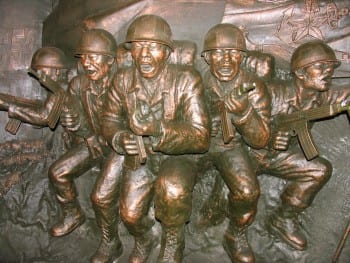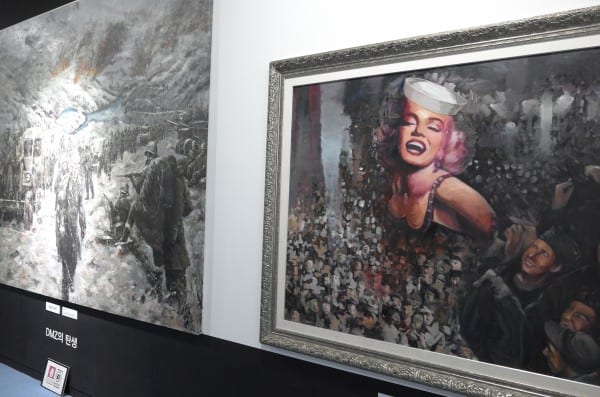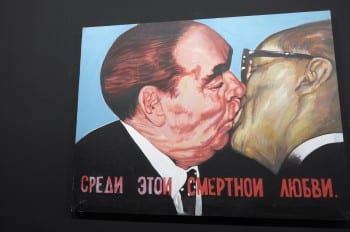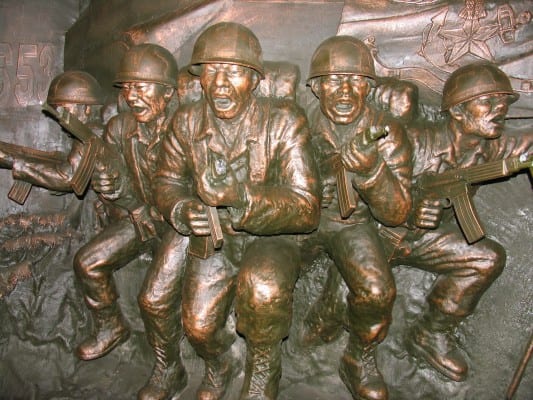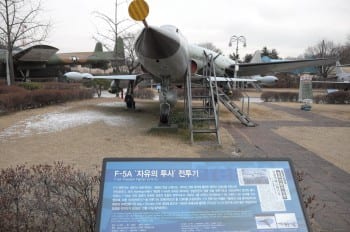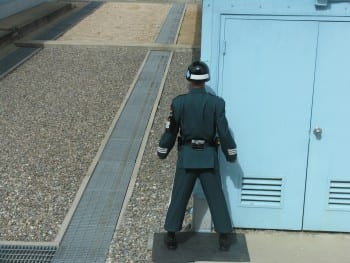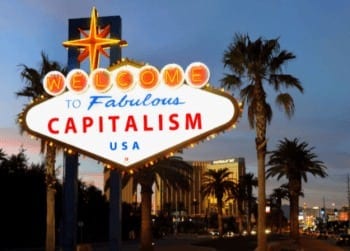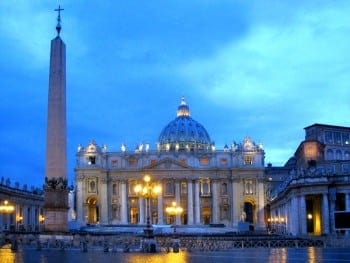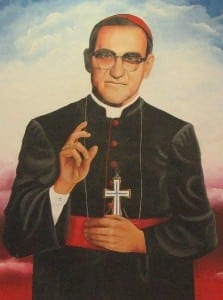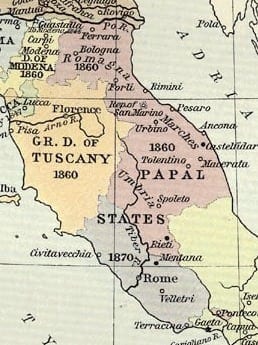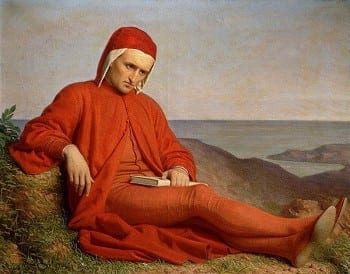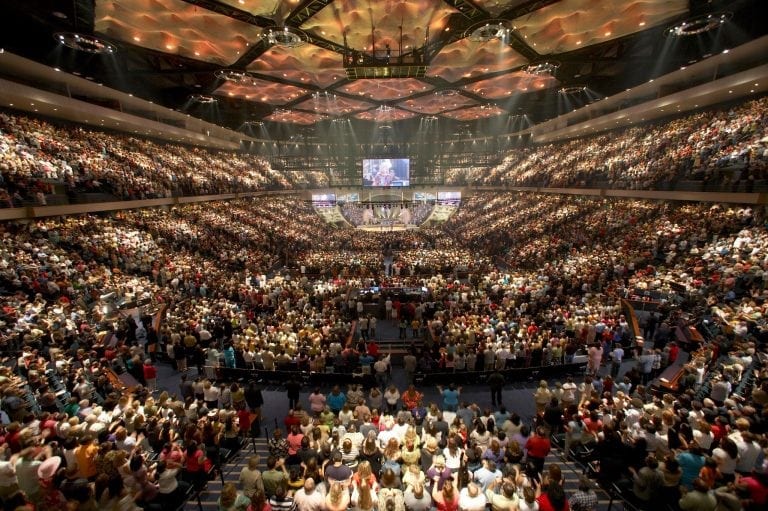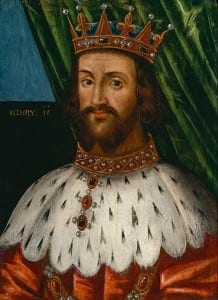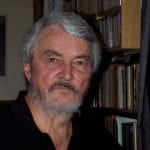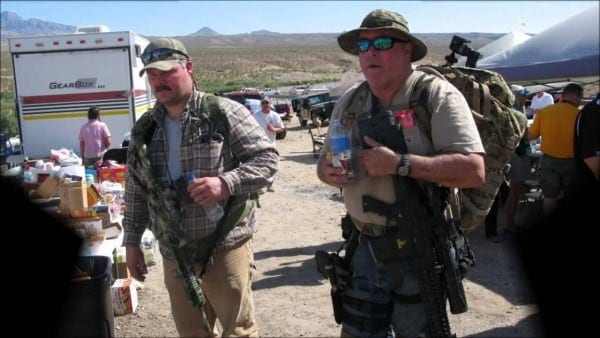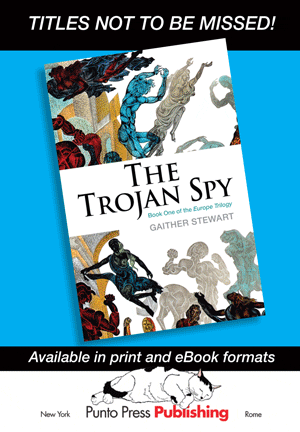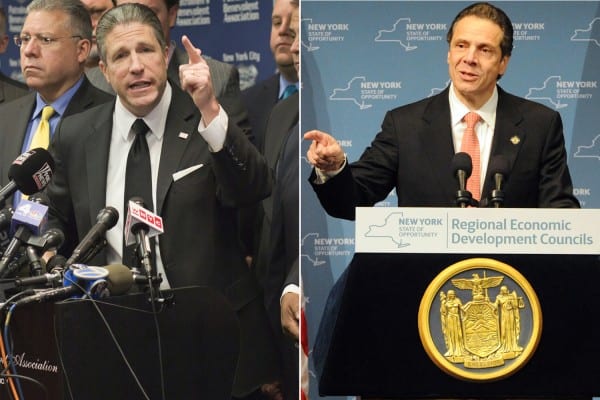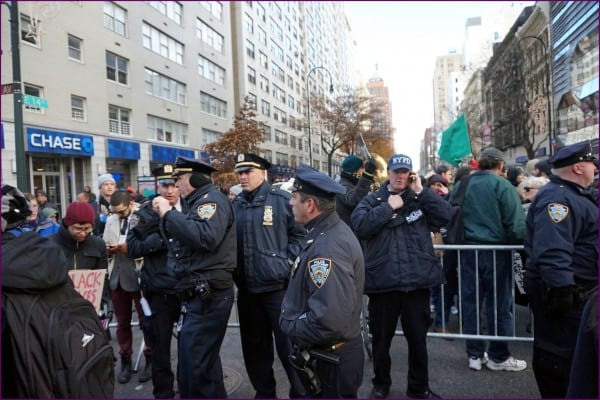South Korea and the Art of Collaboration
//
=Text and Photos By=
Andre Vltchek
Journeys in the land of the eternal brainwash
[dropcap]I[/dropcap]f raw, naked propaganda makes you sick, stay away from South Korea (ROK)!
While the Western brain-conditioning machine wants you to believe that it is actually the North that is successfully indoctrinating its citizens, those of us who have worked on both sides of the border (or on both sides of the “DMZ”) know much better. And if they don’t tell, they lie!
From the “art work” on both sides of the barbed wire fences, to the institutions designated to brainwash millions of common people, South Korea is leading; its regime’s propaganda (and the propaganda of its Western handlers) is much more experienced, determined, aggressive and therefore, effective.
BE SURE TO CLICK ON ALL IMAGES FOR BEST RESOLUTION
The curator of the “DMZ STORY, Berlin East Side Gallery & DMZ Story Exhibition” sounded more like an interrogator than an artist.
When I visited this huge German–South Korean anti-Communist propaganda “project” in Seoul, I mentioned at the entrance that I would be very happy to write about the exhibition. Then, I was not allowed to simply enter, I was forced to meet the curator.
And the curator sounded and behaved like an Asian apparatchik serving the West and its ideology (there are plenty of them in Japan, Indonesia, Thailand, and Cambodia and of course in South Korea). He began our encounter with the line of questioning so common in Seoul:
“Where do you come from? What are you doing here?”
Then things got a bit arrogant and patronizing:
“What do you know about Korea? Is this your first time here?”
“I know both sides fairly well”, I replied, still relatively politely.
“Both sides? How could you know both sides? You visited North Korea?”
“Yes”, I replied. “I was invited by the DPRK government. I traveled as a member of the Ramsey Clark Peace Delegation…”
Instead of showing well-mannered interest, his face turned red and he exploded:
“So you were told all those lies! You were shown nonsense, propaganda, fabrications”!
By then we were inside the multi-story exhibition venue. It was a truly monstrous place: lowest grade of propaganda kitsch! There were paintings of Brezhnev French-kissing Erich Honecker, as well as some sentimental outpourings about freedom, democracy, and peace… Anti-Communist barks were intertwining with pro-Western, pro-American ‘artwork’. There were images of both the Berlin Wall and Marilyn Monroe, on the same panel.
“Do you ever show mass-slaughter of Korean citizens by the US military?” I wondered.
“Americans never harmed anybody!” he began shouting. “They are very good people. Maybe there was some unfortunate collateral damage during the war, but they would never harm anyone on purpose.”
His eyes were shining. He hated me with all his essence. It was obvious. And it felt so wonderful to be hated by someone like him!
“I have a good friend, an Australian artist” I resumed our conversation. “His name is George Burchett… His father’s name was Wilfred Burchett… You know, perhaps the greatest English-language journalist of all times, a war correspondent… He worked in your country, during the war. He exposed countless crimes against humanity performed here, by the West. He proved that the Americans were burning numerous Korean civilians alive, in the tunnels, while conducting bacteriological warfare. And that many Western prisoners of war were forcefully disappeared by their own military, when they were, after being exchanged, insisting on telling the truth about how well and humanely they were treated by their North Korean and Chinese captors.”
I gave him my card. He ran to his office in order to Google me, and most likely, to report me. He was fuming. A few minutes later he ran back to the gallery, shouting: “You do not exist!”
He obviously kept misspelling my name. I helped him, I reestablished my existence, and then left the place.
*
The War Museum of Korea, also known as The War Memorial of Korea, is perhaps the single greatest propaganda institution anywhere on earth. It is so outrageous, so grotesque, so vile, and so huge, that only those who see it could believe that something like that could actually exist, scarring our Earth.
US strategic B-52 bombers are “decorating” its lawns, and so are tanks, helicopters and jet fighters, even some gunboats.
Statues all over the neighborhood are depicting insane looking soldiers, charging towards their invisible enemies – no doubt the fellow Koreans and Asians. The ROK, North America and the West are shamelessly glorified. Everything North Korean, Communist, and Asian seems to be spat on.
There are endless explanatory signs, describing events and equipment, like the one in front of a deadly US jet fighter: “F-5A ‘Freedom Fighter’ (U.S.A.).”
There are memorials to those countries that participated in the Korean War, on the South Korean side, including such places like South Africa (still apartheid), Ethiopia (still fascist), Colombia, Thailand and Philippines (fascist and staunchly pro-Western), Turkey, but also, of course the US, UK, Canada and Australia.
There is a Museum Wedding Hall, in case someone is interested to tie the knot while being surrounded by all those bellicose relics, equipment and ‘art work’. Many actually do get married here, I am told; true patriotic duty, I suppose.
*
[dropcap]I[/dropcap]n South Korea, all Communist parties are banned, so the Communists have to operate clandestinely.
According to The Review of Korean Studies:
“The South Korean government enacted legislation against “anti-national” activities in 1948 and firmly establishing an anti-communist ideology with the National Security Act. The act outlawed any dissent or criticism of the ruling South Korean government, effectively making communism illegal. This included the media, art, literature and music…”
Truly democratic… But as long as voters are allowed to stick their papers to some box…
South Korea, one of the richest countries in Asia, grew on the foundations of open and uncompromising collaboration with the West in general and with the United States in particular. In the past it was resting on the fascist concepts designed by the West and by its own military and business oligarchs. ROK tortured, murdered and disappeared its dissidents. In many ways, it was not unlike Pinochet’s Chile or Suharto’s Indonesia.
Until now it remains one of the most fundamentalist hubs of capitalism, consumerism and pop culture. “K-pop” is actually spreading nihilism, idiocy, egotism and ignorance all over Asia, acting as an important tool of Western cultural imperialism.
The wealth does not always come with production (although some of it does). Seoul always got well rewarded for its efforts by its Western handlers.
While studying in New York City, I got to know several South Korean young women who were sent by their families to get diplomas at top US universities, while also acting on behalf of their corrupt military and corporate clans, purchasing prime multi-million dollar real estate; mainly condominiums in Manhattan.
*
Seoul is bad, but indoctrination gets even more intense, as one approaches the “border”.
At the very beginning of 2016, South Korean disinformation gurus resumed bombardment of DPRK with the vilest propaganda imaginable, using giant loudspeakers. Nonsense that was shouted through them again and again was supposed to humiliate the DPRK and its leadership, to discredit Communism, and to show the superiority of capitalist and Western dogmas.
The DPRK was ‘punished’ by those huge speakers for its missile program. ROK’s logic is simple: “it is fine to host the most aggressive army on Earth (the US army) on our territory. But if the DPRK decides to defend itself, it has to be castigated”.
Some time ago I wrote about one of my visits to that area – to the Demilitarized Zone (DMZ). Here are a few updated excerpts. Until now nothing has really changed for the better:
Any trip to the border is revealing, as long as one is ready to keep his or her eyes open and to forget for a while about clichés and slogans which have been hammered into our brains for decades by Western propaganda: “South Korea: freedom and democracy. North Korea: evil state”…
If you are a connoisseur, the “Korean Veterans Association” arranges the ‘most enjoyable’ visits in conjunction with Chung-Ang Express Tour. Guides are nothing less than former South Korean soldiers and intelligence officers; just what those who are always willing to sample delicious nuances and tastes of pro-market and pro-western brainwashing process truly appreciate!
Everybody knows perfectly well what he or she is supposed to think about the land above the 38th parallel, but there is very little knowledge, at least in the West, about the brutality of former South Korean regimes: their fraudulent elections, aggressive anti-leftist propaganda, corruption, campaigns of terror and intimidation, torture and political killings. Not much is remembered about the brutality of the US forces during the Korean War, including several massacres of the civilian population. The Vietnam War and Western genocides triggered in Vietnam, Cambodia and Laos overshadowed the equally terrible chapter of the Cold War, which took place on the Korean peninsula.
But back to the visits to the DMZ and the “Joint Security Area” at Panmunjeom, with the “Korean Veterans Association” vehicle and with Mr. Kim as my guide:
One day before my departure I received the usual memo and warning:
“PLEASE NOTE” the leaflet said: “Casual clothes such as blue jeans (kind of jean), and sandals (slippers) are not permitted in the area. Shaggy or unkempt hair is not allowed either. Any equipment, microphones or flags belonging to the communist side in the MAC conference room are NOT TO BE TOUCHED! Do not speak with, make any gestures towards or in any way, approach or respond to personnel from the other side.”
No alcohol consumption was allowed before or during the trip.
[dropcap]I[/dropcap]n the morning I put on sharp looking black pants, trimmed my beard, and charged my cameras. After examining my reflection in the mirror I came to the conclusion that despite some shortcomings in my appearance beyond my control, I looked fit to represent the affluent world of ‘democracy, freedom and economic opportunities’. My inner thoughts remained well hidden and unless someone were to force me to undergo a lie-detector test, there was hardly any danger that my presence at the most militarized frontier in the world would cost disturbances or embarrassment to my South Korean hosts. Armed with my notebooks, cameras and US passport, I left the hotel, in anticipation of yet another surreal undertaking.
The big bus slowly and majestically departed the center of Seoul. Mr. Kim, our guide, exceeded all my expectations. He summarized the evilness of the North Korean regime, underlined the great economic, moral and democratic might of the the Republic of Korea, and then warned us to be careful, “very careful” when we encounter “those North Koreans” at the border:
“…And don’t make any unexpected and sharp moves. Don’t step away from the trails: the border is a minefield. Take photographs only when I advise you. Do not talk to North Korean guards! Enjoy your trip!”
At the back of my seat, I found a brochure printed by the Korean Veterans Association. On the front page, a middle-aged western couple was grinning (showing perfect and clearly fake teeth) in the direction of North Korea. Sure enough, these people were not pointing fingers at anything. The woman was pointing her designer sun glasses held in well manicured fingers, a man – looking like he had just won a brand new Jaguar in sweepstakes – was pointing his small camera towards the territory of the proud member of the “Axis of Evil”.
“…And our close and reliable ally – the United States of America – is always ready to defend our freedom and democracy,” came from the loudspeakers attached to the ceiling of the bus. Mr. Kim was obviously doing his best to educate us.
“Among other things, you will see Reunification Village – no taxes paid by its inhabitants. They are growing one of the best ginsengs in the world there. Reunification Bridge… You will see some of 700 thousand South Korean and American soldiers stationed at the border: 90% are Koreans, 10% Americans… You are all very privileged: Korean citizens have to apply for this visit 6 months to one year in advance, and most of them are not granted a permit… You will also see Ballinger Camp…”
A perfect multi-lane highway was following the coast of the Han-gang River. There were no milestones on either side of it. Soon after we left Seoul, we spotted a small area between the motorway and the river being converted into a tremendous barbed-wire fortification “decorated” only with watchtowers and other military installations. All that probably just in case some North Korean military divers decided to invade this ‘capitalist paradise’.
Enormous concrete apartment blocks were visible from the window on the right side of the bus. Entire towns, entire cities made of the same multi-story housing projects. I could hardly keep up with the numbers: Block 23, Block 78, and on it went. Majestic Han-gang River, soldiers and endless wire on one side; concrete and identical looking housing ghettos on the other.
The bus entered “Freedom Road” and after a few miles, stopped at the parking lot near “Freedom Bridge”. There stood the last South Korean train station, after which the tracks went towards the North and the bridge itself, decorated with the heart-breaking paper messages written by ordinary Korean people attached to the metal grid: mostly wishes to see their families across the border at least one more time.
The bus moves again, this time towards the Tongil Bridge and the checkpoint. We were entering the “no-go-area”, the most militarized place on earth, the “Demilitarized Zone”.
Mr. Kim’s outbursts were intensifying. He was jumping at the front of the bus, excited, clearly ‘on the mission’. He began mixing attacks against North Korean state with his cheap military humor:
“So why do we still have so many American soldiers here? What do you think? Hey? Because they are protecting us! And because we don’t want to spend more money on our own defense!” He was laughing at his own puns, but nobody else was. Foreign visitors on the bus were silent. The view behind the window obviously overwhelmed them – especially those who came there for the first time.
Barbed wires were everywhere and so were the military trucks driving up and down the road. Everything looked unreal and disturbing, including the ginseng-growing Freedom Village, a small hamlet separated from the rest of the world, surviving in the middle of the minefields and well-hidden high-tech weaponry.
The area looked peaceful, almost serene. No heavy weapons visible: everything hidden under the ground. There must have been tens of thousands of tanks, camouflaged bunkers, artillery and missile silos as well as nerve-gas and biological-weapons concentrated around here, but from our angle of vision, there were only some majestic migrant birds flying over the gently rolling hills, shitting on all this baloney from tremendous heights.
The Korean Demilitarized Zone (DMZ) is just a strip of land – approximately 248km/155 miles long and 4 km/2.5 miles wide, cutting across the Korean Peninsula that serves as a buffer zone between the North and South.
The bus drove through the military Camp Bonifas and terminated its journey at the parking lot at Ballinger Camp. Our passports were checked again and then we had to attend a briefing. Another list of rules, another endless outburst of propaganda pushed down our throats. American and Korean soldiers were patrolling side by side, inside the briefing room and on the road.
“The American army has a golf-course here”, explained Mr. Kim after we had boarded another, this time military bus with two soldiers inside. “The funny thing is that it has only one hole and it is surrounded by the mine-field”. He laughed loudly, but again nobody responded.
And then it appeared in front of us: the ‘truce village’ – Panmunjom – the only place where the North and South connect. It is called JSA (Joint Security Area), with several buildings on both sides and some constructed right on top of the MDL (The Military Demarcation Line). This is where negotiations between the two sides have been held since 1953.
We were obliged to visit “Freedom House”, a monstrous propaganda establishment made of glass and steel. From here, the North Korean information center (Panmun-gak Pavilion) is less than 100 meters away. Theoretically I should have been free to cross all the way to the DPRK side and visit their center. I should have been free to move around, as long as I did not leave the JSA.
I was not prevented to enter by the North Koreans: I was prevented to leave by the brisk military voice of Mr. Kim, my guide or whatever hell he really might have been. And of course, by Mr. Kim’s handlers…
Instead of going north I was again bombarded by stories about the bizarre “Stump of the Tree Chopping Incident” from 1976, about the shootout which followed the defection of a Soviet diplomat to the South during the Cold War, about long tunnels which were dug by the North Korean military (no outright lies, just manipulated half-truths).
At some point I felt that I could not stomach Mr. Kim any longer. I approached him on the viewing terrace, just a few feet from DPRK, and asked him publicly, in front of the soldiers and visitors:
“Mr. Kim, could you please tell us about the accident involving the US soldier defecting from here to the North in 1983?”
Mr. Kim stared at me in disbelief and I could only guess what would have happened to me if I had dared to challenge him in the days of the ROK’s full-blown military dictatorship.
“You must be out of your mind, young man”, he replied in a patronizing tone of voice. “Why would an American defect to the Communist North? Nothing like that ever happened.”
But it did happen, and it was not the only “incident” of its kind.
Finally I was allowed to enter the barrack where the negotiations between the North and the South take place. The Demarcation line – the border – runs in the middle of the table. I went around the table, technically entering the DPRK. It felt good…
South Korean soldiers kept their watch inside and outside the barracks. The ones selected to serve in this area were enormous – probably two meters tall.
Their ‘adversaries’ from the north were of average height.
South Korean soldiers, although most likely made of flesh and blood, were trained to stand still without the slightest movement, creating the impression that they were made of wax. Not one muscle moved. Their expressionless faces were decorated by large-frame sunglasses, making them look like mafia or like bouncers in some exclusive bordello. Outside the barracks, soldiers were standing with their legs unnaturally spread, only half of their faces facing the enemy, the other side facing the corner of the wall.
Grotesque, Kafkaesque, all this… Then I thought: “This is the true image of fascism, militarism and imperialism.”
At the other side, lonely looking North Korean soldiers appeared modest and very human in comparison, their Soviet-style uniforms far from fancy. They were facing their adversaries directly, not the wall of the barrack: directly, like true and proud human beings!
Standing for a while on the North Korean turf, I thought how little people are allowed to know about this land! Only what is tailored by countless vicious reports carried by the mainstream Western media.
But after the war, the North was successfully competing with the South. For quite some time it was richer, more prosperous, socially balanced, and optimistic. Then the ‘eastern block’ was destroyed by Western imperialism, and the North cynically abandoned, supported only by its great neighbor: China. Isolated and petrified (not unreasonably, as is evident from the history), it became a target, a punch bag of victorious western propaganda: “Communism? You want Communism? Just look at North Korea; that’s an alternative to our free society.”
The DPRK has been facing countless provocations from the south, but mainly from the West. US military bases on the territory of the ROK… Deadly US air force bases in Okinawa… Naval exercises near its shores… Sanctions and demonization… Terrible insults… All this, only because the DPRK wants to go its own way! Only because it has been refusing to become a serf, a slave!
And the past… Even according to BBC Timewatch:
“More than one million civilians died during the Korean War in 1950 but no one knows how many of these were killed by American forces. Few doubt that US forces committed atrocities in Korea, although the Pentagon denies official responsibility for one of the worst incidents of the war: the frenzied slaughter of civilians at the No Gun Ri railway tunnels”.
I asked Mr. Kim about the No Gun Ri tunnel, but by then I was firmly on his shit list, and he stopped replying to my questions.
Our bus briefly stopped at the “Bridge of No Return”, an abandoned border crossing. Again, the DPRK was just a few feet away.
“Look at the “Propaganda Village on the other side”, shouted Mr. Kim, salivating. “You can see the houses there, but nobody lives there. It is just propaganda. Pro-pa-gan-da! And that flagpole with the North Korean flag: it is the highest flagpole in the world, 157.5 meters high. We built our flagpole at 98.4 meters in 1980’s and they felt they have to have the highest one in the world.” He produced a dry, ugly and sarcastic laugh.
Again, the no man’s land between two Koreas seemed serene and quiet. Green fields and light mist were pleasing to the eyes. Birds were flying and shitting, while creeks were singing.
“To hell with the flagpole”, I thought. “What were you doing in the 1970’s, during Park’s dictatorship, Mr. Kim? Were you breaking balls, raping, torturing students?”
“And now”, said Mr. Kim, grinning happily, “Let’s give a big applause to our heroic soldiers, both Koreans and Americans!” We were approaching Camp Ballinger. “Here you can’t take photographs, but you can buy souvenirs and finally? Finally you can have a drink!”
After several checkpoints and a few miles of military roads, it was traffic jam all the way to Seoul. Traffic and barbed wires, only this time to my right. And the endless ocean of concrete apartment blocks on the left…
“Come and join us again”, said Mr. Kim, parting. Across the street, protesters were blasting “The International” in Korean, from enormous black speakers placed right on the sidewalk in front of some office building.
*
In the Democratic People’s Republic of Korea (DPRK), things were more enjoyable. I went there in 2013. Pyongyang, celebrating the 60th anniversary of the Victory; it was festive, full of cultural venues, grand music performances and concerts.
I then wrote:
“60 years ago North Korea won the war. But some 4 million people died, many of them civilians. Maybe it was more than 4 million, nobody knows exactly. The capital city Pyongyang was totally leveled to the ground. I did not want to hear loud music and long speeches. I wanted to pay tribute to those who lost their lives, by sitting quietly by the river covered by mist, listening to the tall grass. But during my 8 days in North Korea, I had very few moments of silence, almost no opportunity to reflect.
What have I seen in those 8 days in DPRK – in North Korea? I saw an enormous futuristic city, Pyongyang, the capital, built from the ashes. I saw enormous theatres and stadiums, a metro system deep below the ground (public transportation doubling as nuclear shelter, in case the city came under attack). I saw trolley buses and double-decker buses, wide avenues, unimaginably ample sidewalks, roller-skating rinks and playgrounds for children.
Statues and monuments were everywhere. The size of some boulevards and buildings were simply overwhelming. For more than a decade I lived in Manhattan, but this was very different grandeur. New York was growing towards the sky, while Pyongyang consisted of tremendous open spaces and massive eclectic buildings.
Outside the capital I saw green fields, and farmers walking home deep in the countryside. Clearly, there was no malnutrition among children, and despite the embargo, everyone was decently dressed.”
Young people that were working with me – my interpreter, drivers, and guides – had a fantastic sense of humor. They were also very kind.
My interpreter was obsessed with potato chips. She was also picking my brains about how to deal with her ‘evil’ boyfriend who was not ready to make his move and to propose marriage. As we were driving all over the country, they were showing me their motherland, while I was sharing my photos from all corners of the globe, stored on my iPhones.
At one point we came to the same spot, which I knew from the other side, to the same Panmunjom, and to the same DPRK information center (Panmun-gak Pavilion), which a few years earlier I had not been allowed to visit from the side of Republic of Korea.
There were detailed photo exhibitions and paintings on this side of the border. There were terrible events illustrated, and bitter memories revisited. But it was all so serene, human, and endlessly sad.
Ramsey Clark spoke about the horrors of the past, and about the brutality of US actions. An old man, one of the survivors of the mass killings of civilians in the tunnels, spoke about the brutality he witnessed as a child. The artwork in the local museum depicted the savage torture and rape of Korean women by US troops, their bodies mutilated; with nipples penetrated by metal hooks.
On July 26 2013, I met, together with Ramsey Clark and a few other delegates, Mr.Yang Hyong Sob, the Vice President of the Standing Committee of the Supreme People’s Committee.
“Seeing is believing”, he declared. “Please tell the world what you witnessed here.”
I replied:
“It is their common tactic. The West portrays people of the DPRK, China, Cuba, Venezuela, Russia, Iraq, Afghanistan, Syria, Serbia, as heartless, as if they were some plastic androids. Then, subconsciously, compassion towards the people of those nations vanishes from the hearts of the Western public. Suddenly it is fine to starve, to bomb, to murder thousands, even millions of those androids. But once the faces are shown, the Western public gets confused; many refuse to support mass murder. Therefore, the faces are hardly shown.“
No one knows how many Korean people died during the war. Millions, for sure… Some say 4 million… or more. Further millions of human lives were ruined by the sanctions, Western-provoked intimidations of the DPRK, and by the arms race.
Still, the hate, insults and professional propaganda are flying mostly from the South!
*
[dropcap]S[/dropcap]eoul 2016… The first ice is gently covering the surface of Han-gang River.
My hotel “W” on top of Walker Hill is overly “cool”, impersonal, overpriced and metallically cold. Techno beats are following me everywhere, from elevators to the vast lobby.
“Where are you from?” The driver on the way from the Incheon Airport interrogates me. His English is perfect. He served with the US military. Almost all drivers of those orange taxis that the foreigners are urged to use, are government agents. They only ask questions, and hardly ever answer.
“What do you think about North Korea? Oh, you went there? You know?”
After I reply, when I say what I witnessed, deep silence follows. Then a barrage of pointed questions. I ignore that old snitch.
I go around Seoul, searching for dissent. No new great films are made about the horrors of the ROK dictatorship. They still sell “Peppermint Candy” in some DVD stores, the greatest film so far, but it was made so many years ago…
There are some books, describing South Korean racism, xenophobia, and police, military and capitalist brutality. There are stories about the immigrants from DPRK, doctors and professors, forced to work as cleaners in the toughest bordellos of Seoul. It is not only foreigners who became targets of chauvinism, but also the immigrants from the north.
I don’t like what I see and feel in Seoul. It is cold, brutal, confused. I feel totally alone here. I talk to several foreigners: they all feel the same: from diplomats to English teachers. It does not feel like Asia. I am not exactly sure what it feels like. Like an enormous military base of some relatively rich country, perhaps?
Everyone who means something here was educated in the US. I see tremendous, horrifying Pentecostal churches all over the city. I see open and concealed pro-Western propaganda, everywhere. I see militarization. And Christmas trees…
Nobody wants to talk, if you are ‘different’. Unlike in Japan, here, many speak English: for obvious reasons. But nobody talks, beyond clichés. You have to fit. You have to be a Christian, right winger, anti-Communist, damn it!
Two of my books are translated to Korean and published in Seoul. I try to meet my publishers, but they reply in an extremely rude way, turning me down. They are not interested. My work is just some commodity. They don’t give a shit about me as a person.
I work for several days here. Eventually, emotionally exhausted, I run away.
On my TG flight from Seoul to Bangkok I watch the last bit of the insane propaganda – a South Korean film about the DPRK invasion, called “Northern Limit Line”. Again, North Koreans are robots, beasts, murderers, while South Koreans are good sons, good citizens, and true heroes. Like in K-pop, even the propaganda is now utilizing self-righteous, egotistic forms.
I came to write about South Korean propaganda and I got what I was asking for. I cannot complain. But I actually overate. The free “buffet” of it was just too vast. It will take some time to digest before I come back for more!
 Andre Vltchek is a philosopher, novelist, filmmaker and investigative journalist. He covered wars and conflicts in dozens of countries. His latest books are: “Exposing Lies Of The Empire” and “Fighting Against Western Imperialism”. Discussion with Noam Chomsky: On Western Terrorism. Point of No Return is his critically acclaimed political novel. Oceania – a book on Western imperialism in the South Pacific. His provocative book about Indonesia: “Indonesia – The Archipelago of Fear”. Andre is making films for teleSUR and Press TV. After living for many years in Latin America and Oceania, Vltchek presently resides and works in East Asia and the Middle East. He can be reached through his website or his Twitter.
Andre Vltchek is a philosopher, novelist, filmmaker and investigative journalist. He covered wars and conflicts in dozens of countries. His latest books are: “Exposing Lies Of The Empire” and “Fighting Against Western Imperialism”. Discussion with Noam Chomsky: On Western Terrorism. Point of No Return is his critically acclaimed political novel. Oceania – a book on Western imperialism in the South Pacific. His provocative book about Indonesia: “Indonesia – The Archipelago of Fear”. Andre is making films for teleSUR and Press TV. After living for many years in Latin America and Oceania, Vltchek presently resides and works in East Asia and the Middle East. He can be reached through his website or his Twitter.
Note to Commenters
Due to severe hacking attacks in the recent past that brought our site down for up to 11 days with considerable loss of circulation, we exercise extreme caution in the comments we publish, as the comment box has been one of the main arteries to inject malicious code. Because of that comments may not appear immediately, but rest assured that if you are a legitimate commenter your opinion will be published within 24 hours. If your comment fails to appear, and you wish to reach us directly, send us a mail at: editor@greanvillepost.com
We apologize for this inconvenience.
 Nauseated by the
Nauseated by the
vile corporate media?
Had enough of their lies, escapism,
omissions and relentless manipulation?
Send a donation to
The Greanville Post–or
But be sure to support YOUR media.
If you don’t, who will?
